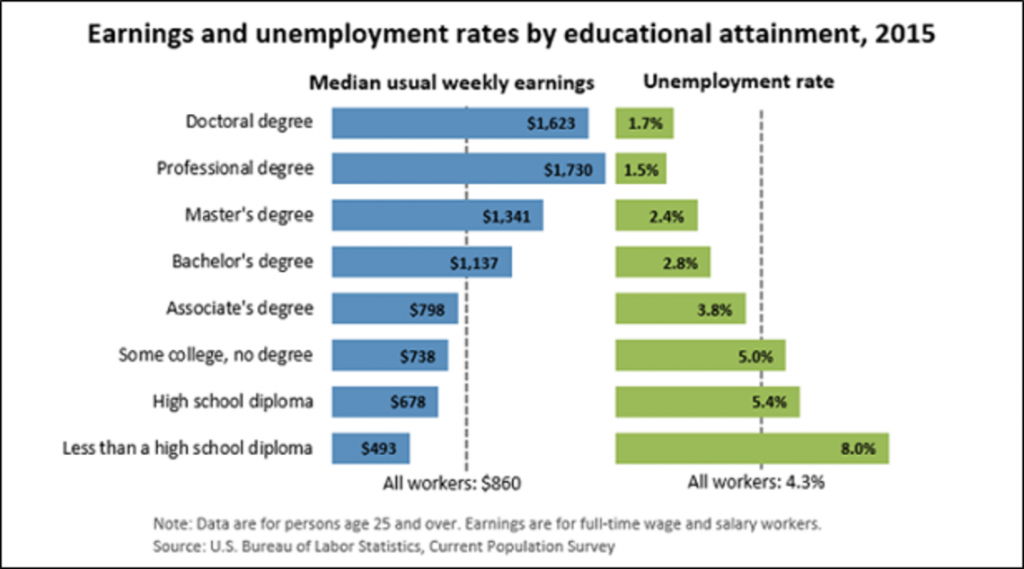UWM graduated more than 2,200 individuals at its mid-year commencement a few weeks ago. These remarkable individuals will go on to be our accountants, architects, engineers, entrepreneurs, health care professionals, museum curators, scientists and strategists who address the needs of society and have a powerful impact.
Is a College Degree Worth the Investment?
Even as we witness that society is increasingly knowledge-driven and reaps the benefits of an educated population, there has been significant change in how higher education is valued. Other factors such as job market shifts and competing state-level budget demands and federal challenges have led to the pointed question: Is a college degree worth the investment?
The discussion around the cost of college and the value of a degree is divergent. Watching the headlines is like watching a tennis match. “Is college worth it? Goldman Sachs says maybe not” is alongside “Why College Is Still Worth It Even Though It Costs Too Much,” and “Still questioning whether college is worth it? Read this.”
Historical Shifts
This is not the first time we have seen major shifts in the role of higher education. Before World War II, 18% of high school students went to college and most came from wealthy families. Today, 59% of individuals over the age of 25 have at least some college education. In the 1940s, our nation was facing a massive movement from agriculture to industry. Today, we are shifting even faster from an industrial and manufacturing world to one driven by information. Automation and movement of lower-skilled positions to locations overseas have changed our job market.
Societal Role and Rate of Change
Higher education had been deemed a public good, but is viewed as an individual benefit. There is a preference for professional degree programs that result in graduates getting a job over an education that emphasizes critical thinking and enrichment. Marketplace changes have resulted in a demand for low-cost quality over prestige (i.e. why buy a Ferrari if a Kia will get results?).
Simultaneously, the rate of change is accelerating and people entering today’s workforce must adapt quickly. Companies and society need educated citizens who are innovative, nimble, critical thinkers who can solve problems. Chairman & CEO of Manpower Group Jonas Prising said in his piece, 5 Career Tips from a CEO to his millennial children that 65% of children starting their first year of school this year will eventually do jobs that don’t yet exist. Thus, employability is more about one’s capacity to learn rather than using what you already know.
Monetary Value
There is strong evidence that individuals with college degrees earn more and are unemployed less. On average, college graduates earn $1 million more over their lifetime than those without a degree.
Beyond Monetary Value
While we often see statistics about the value of a college education presented in monetary terms, there are several other benefits and factors that are often discounted or ignored because they are not easily quantified.
College graduates clearly benefit society. They are:
- more civically engaged and vote more than their high school educated peers (75% vs. 52% respectively);
- two times more likely to volunteer;
- give 3.5 times higher amounts in charitable giving;
- contribute hundreds of thousands of dollars more toward government services and social insurance programs;
- rely much less on other taxpayers – college graduates’ lifetime government expenditures are ~ $81,000 (39%) lower in present value
Public universities respond to the needs of the communities and states that they serve, and UWM’s history clearly shows this. We provide higher educational opportunities in an economical fashion that stresses affordability. Our dual mission of research and access is one of Wisconsin’s greatest assets that keeps on providing value in the form of our graduates who contribute beyond measure to our region, state and wider world.
Best regards,

